Iranilaisten kamikaze-droneiskuksi paljastuu taannoinen Liberian lipun alla olevaan israelilaisomisteisen tankkeriin kohdistunut isku. Jossa kuoli romanialainen ja britti.
(pitkä ketju)
(pitkä ketju)
Follow along with the video below to see how to install our site as a web app on your home screen.
Note: This feature may not be available in some browsers.

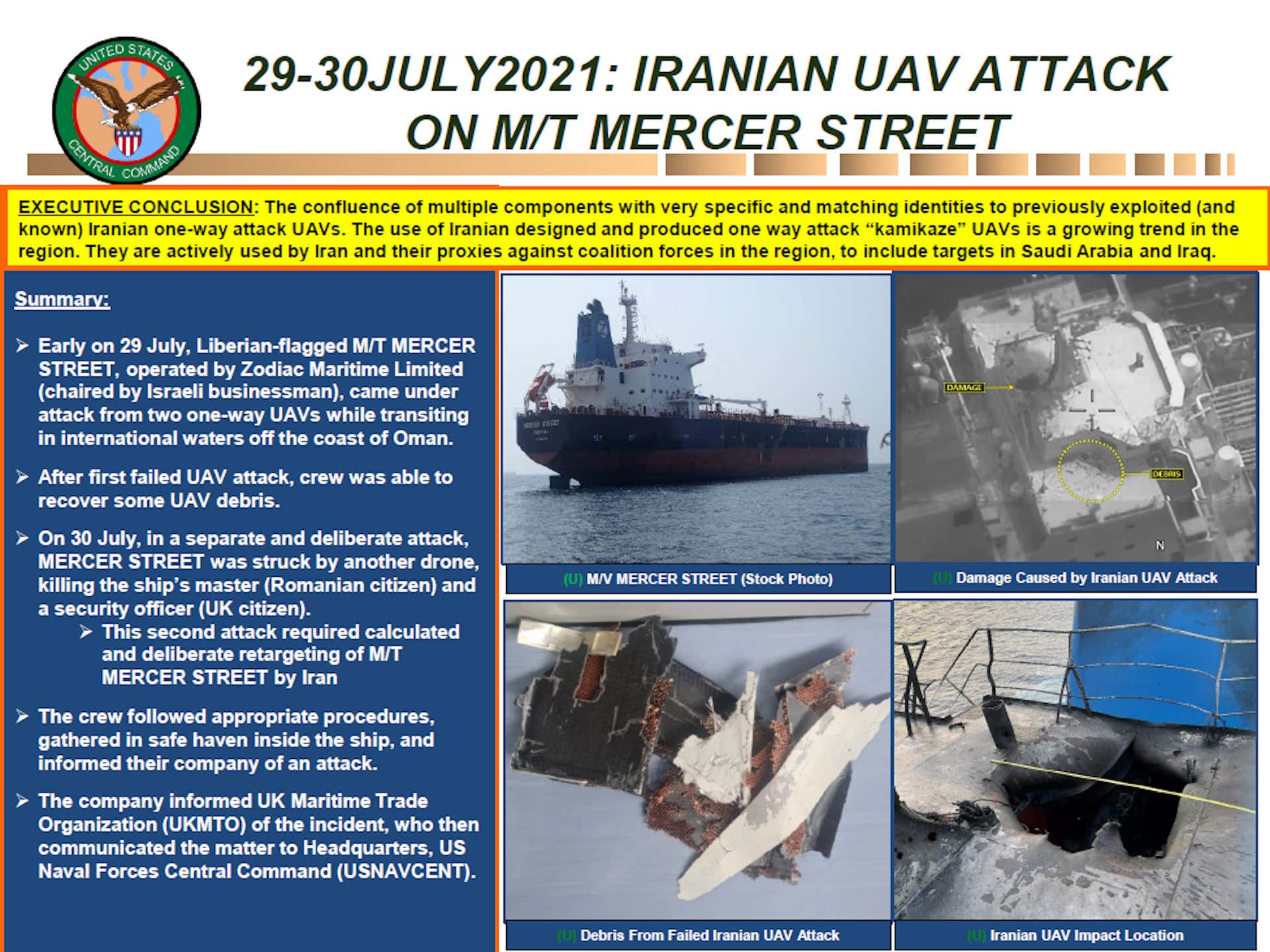
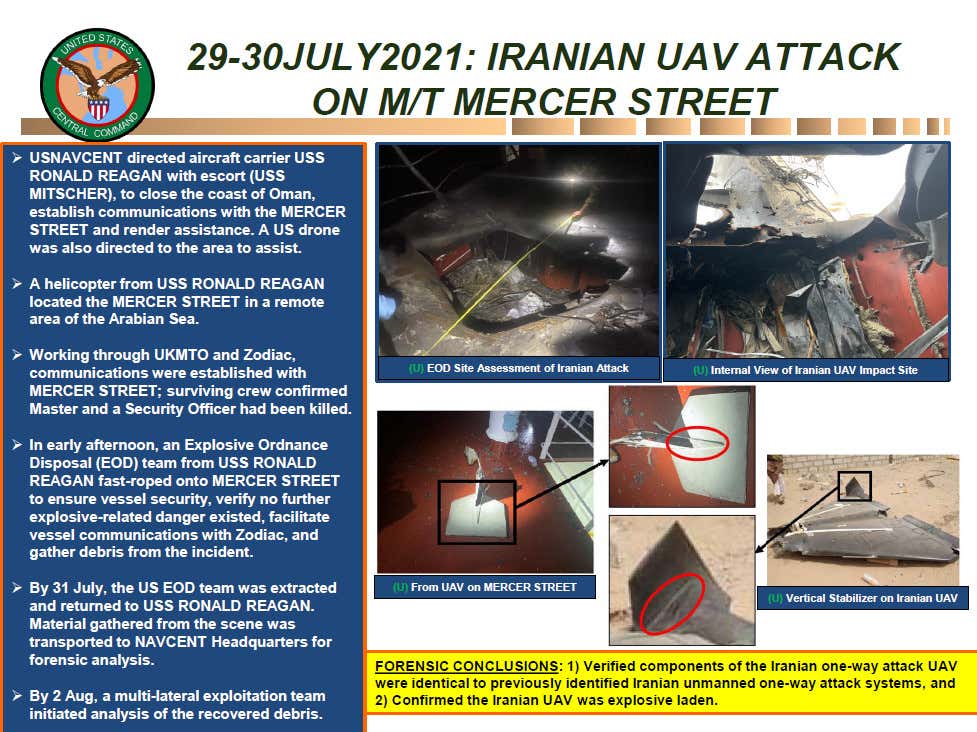

"There is a possibility that the attack, like a previous one on railway system, has been conducted from abroad," Firouzabadi said.
He added that an investigation into the incident was underway.
On Wednesday morning, IRNA quoted another official who claimed 80% of Iran's gas stations had begun selling fuel again. Associated Press journalists saw long lines at multiple gas stations in Tehran. One station had a line of 90 cars waiting for fuel. Those buying ended up having to pay at higher, unsubsidized prices.
Tuesday's attack rendered useless the government-issued electronic cards that many Iranians use to buy subsidized fuel at the pump. The semiofficial ISNA news agency, which first called the incident a cyberattack, said it saw those trying to buy fuel with a government-issued card through the machines instead receiving a message reading "cyberattack 64411."
While ISNA didn't acknowledge the number's significance, that number is associated with a hotline run through Khamenei's office that handles questions about Islamic law. ISNA later removed its reports, claiming that it too had been hacked. Such claims of hacking can come quickly when Iranian outlets publish news that angers the theocracy.
Farsi-language satellite channels abroad published videos apparently shot by drivers in Isfahan, a major Iranian city, showing electronic billboards there reading: "Khamenei! Where is our gas?" Another said: "Free gas in Jamaran gas station," a reference to the home of the late Supreme Leader Ayatollah Ruhollah Khomeini.
The use of the number "64411" mirrored the attack in July targeting Iran's railroad system that also saw the number displayed. Israeli cybersecurity firm Check Point later attributed the train attack to a group of hackers that called themselves Indra, after the Hindu god of war.
Indra previously targeted firms in Syria, where President Bashar Assad has held onto power through Iran's intervention in his country's grinding war.
Cheap gasoline is practically considered a birthright in Iran, home to the world's fourth-largest crude oil reserves despite decades of economic woes.
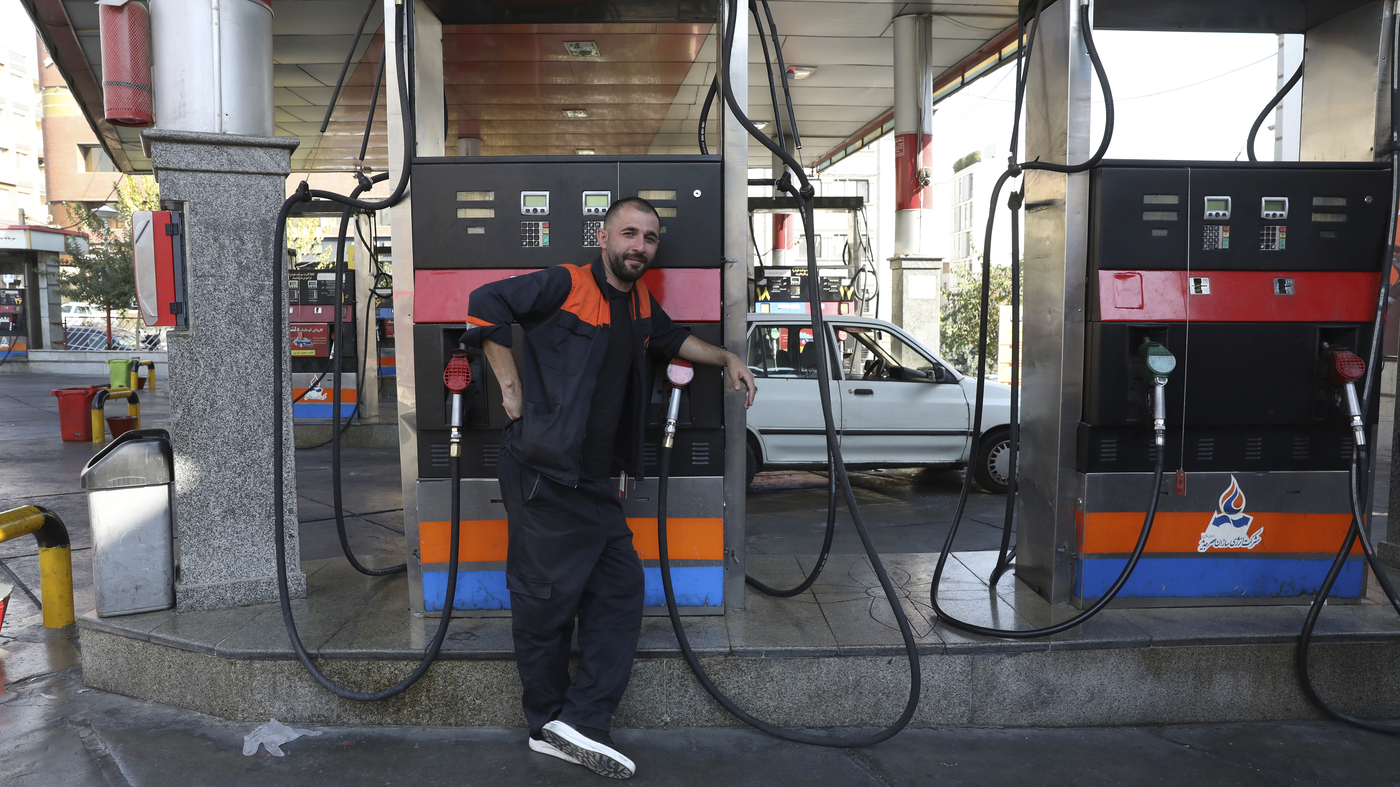
Steve Daniels, head of vCISO, at cybersecurity firm Cyvatar, said the attack “appears to be politically motivated.”
“For me, [it] highlights the need to effectively manage the security of critical national infrastructure,” he said in an email to Threatpost.
Nasser Fattah, North America steering committee chair for third-party risk-management firm Shared Assessments, shared Daniels’ assessment. “Indeed, the incident demonstrates |that attacking common consumer goods, like gas, can quickly have an immediate impact on the economy,” he observed.
“Think of delivery trucks, due to shortage of gas, now cannot deliver goods to the market,” he said in an email to Threatpost. “Such cyberattacks can also have a ripple effect in society that can lead to riots and mayhem.”


Harjoittelevat risteilyohjusten torjuntaa?
Iranian MiG-29 Blasts Target Out Of Sky In Bonkers Low-Level Display (Updated)
This is a rare chance to see an Iranian MiG-29 Fulcrum fire an R-73 missile and immediately destroy a target launched by an F-5.www.thedrive.com
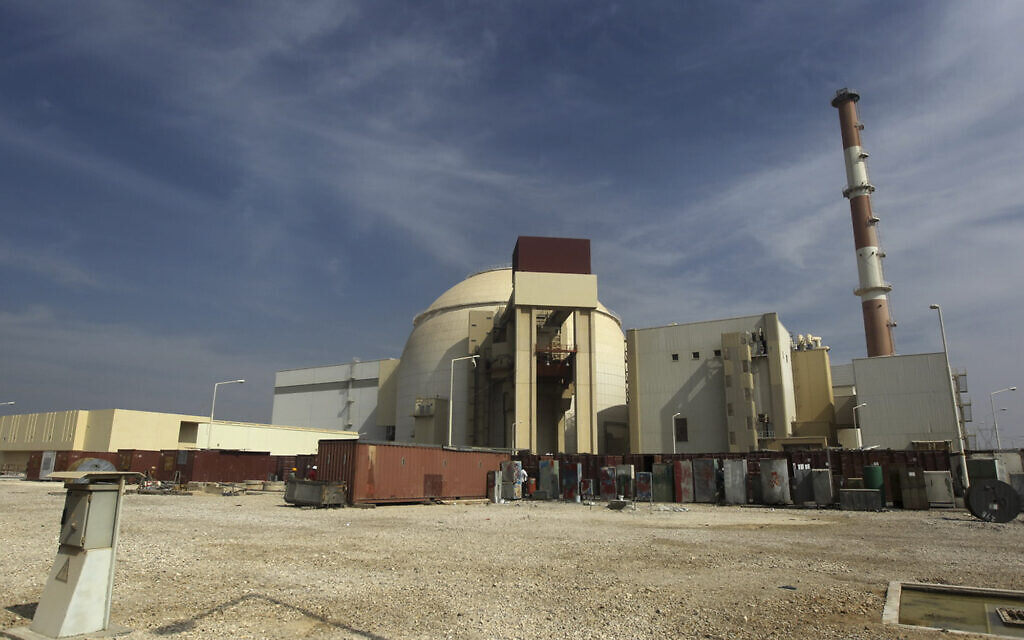
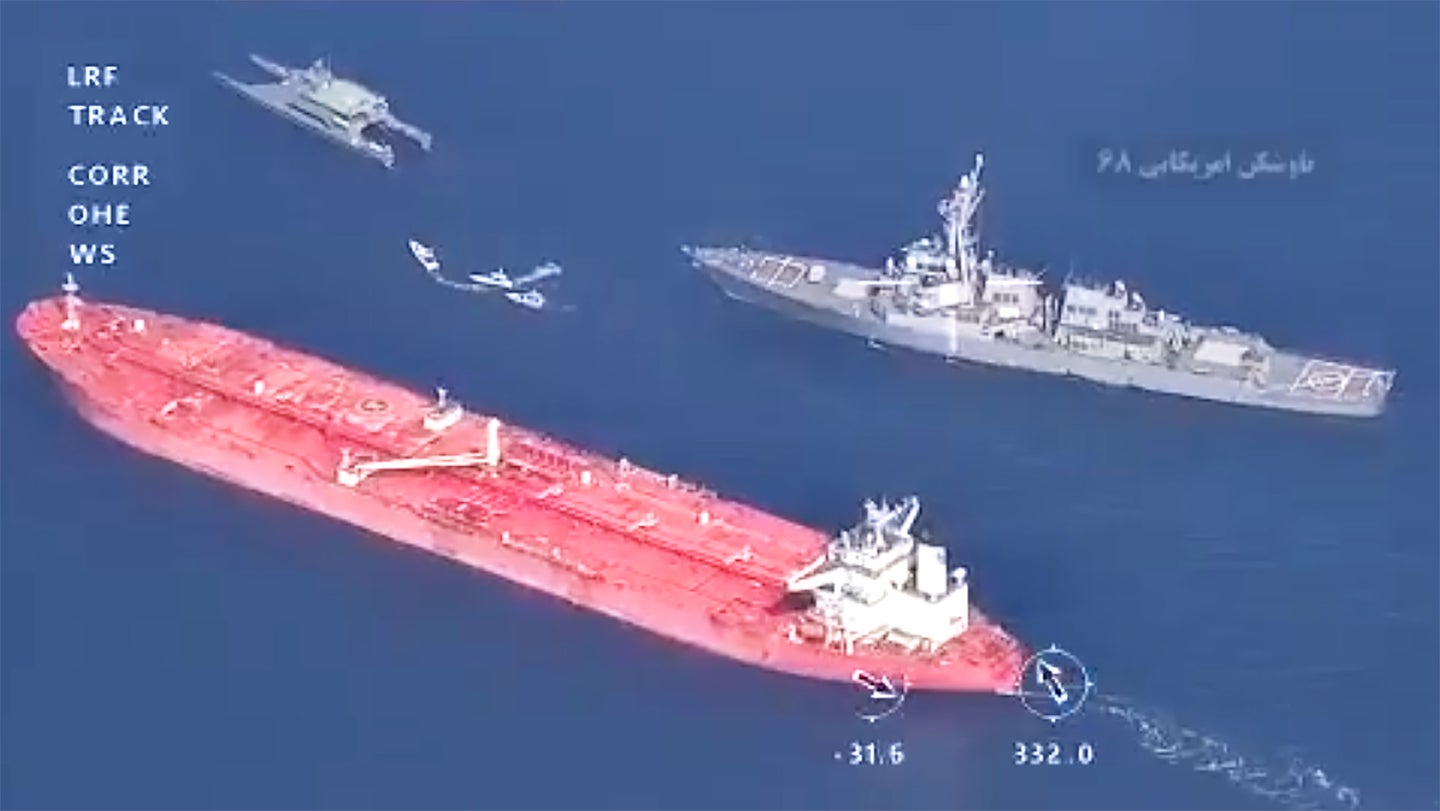

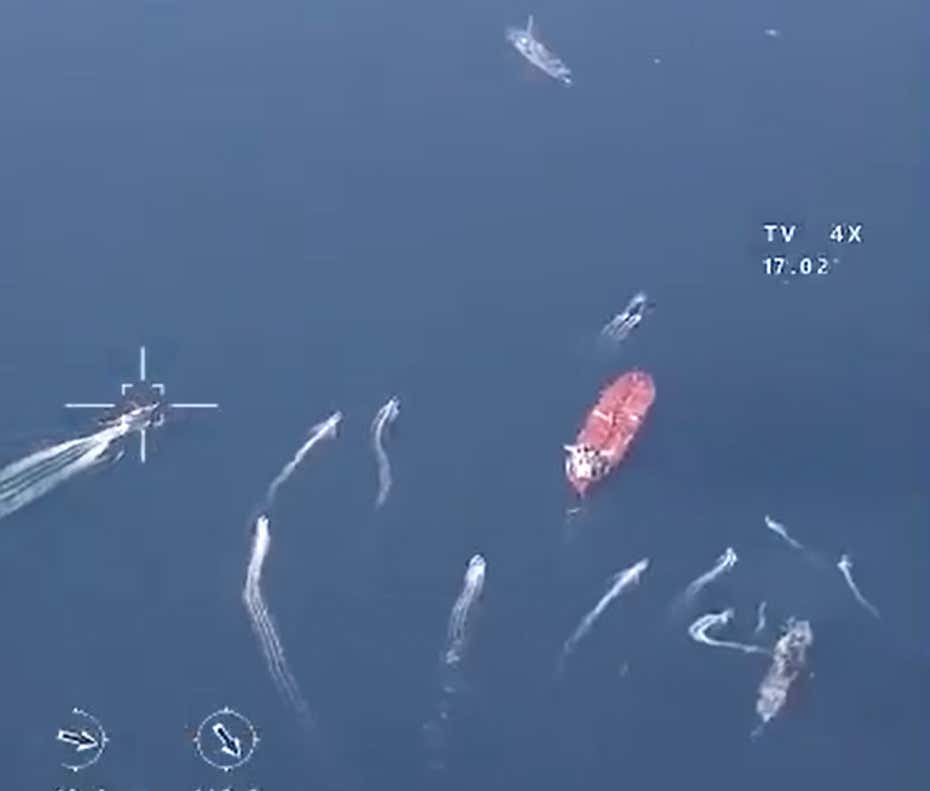
Q: Hello John, the Iranians have said that U.S. tried to seize some Iranian oil. And they prevented it and I wanted to have your side of the story to explain me what happens?
MR. KIRBY: I've seen the Iranian claims they are absolutely totally false and untrue. There was no such effort by U.S. naval assets to seize anything. What this refers to is back on the 24th of October, U.S. Navy assets did monitor Iranian forces, illegally boarding and seizing a merchant vessel in international waters in the Gulf of Oman.
United States Fifth Fleet directed two ships and aerial assets to closely monitor that situation at no time were U.S. forces attempting to retake or otherwise engage in the situation's -- we acted completely in accordance with the law. So, it's a bogus claim.
International talks on Iran's nuclear programme will restart on Monday after a five-month hiatus with Tehran saying it is "determined" to reach a deal but analysts predicting major obstacles to any speedy resumption of the 2015 nuclear deal.
Iran paused the negotiations in June after the election of an ultraconservative new president, Ebrahim Raisi. Diplomats at the time had said they were "close" to an agreement.
Iran ignored appeals from Western countries to restart the talks for several months, all the while strengthening the capabilities of its nuclear programme. In August, Raisi said Iran was again open to talks.
The talks are expected to start around 2 pm (1300 GMT), diplomatic sources said, in the Palais Coburg hotel where the 2015 agreement was clinched.
Along with Iran, diplomats from Britain, China, France, Germany and Russia will attend.
The United States will take part in the talks indirectly.
On Monday, the Iranian foreign ministry said its delegation was in Vienna "with a firm determination to reach an agreement and is looking forward to fruitful talks".
"If the other side shows the same willingness, we will be on the right track to reach an agreement," said ministry spokesman Said Khatibzadeh.
Last week, US Special Envoy for Iran Rob Malley said Tehran's attitude "doesn't augur well for the talks".
"If they start getting too close, too close for comfort, then of course we will not be prepared to sit idly," Malley told the US National Public Radio last week.
In April 2020 hackers infiltrated the systems of an Israeli water-pumping station and tampered with equipment. Individual pumps started malfunctioning as officials scrambled to keep water supplies flowing for millions of people. After the incident, which has been linked to Iran, officials said the damage could have been much worse: They suspect the attack was intended to poison water supplies by increasing chlorine levels. Weeks later, hackers targeted an Iranian port in an apparent act of retaliation.
“This was the first time that a nation responded immediately through the cyber medium for a cyberattack,” says Lotem Finkelstein, director of threat intelligence and research at Israeli cybersecurity company Check Point. The attacks, he says, marked the start of a new wave of hacking against infrastructure in the region, which has disrupted millions of lives.
In the past several months, those strikes have escalated. Fuel supply systems, railway controls, and an airline in Iran have all faced attacks. At the same time, hackers have posted the personal information of a million Israeli LGBTQ dating app users, and exposed certain details about the Israeli army. The skirmishes—which have included physical sabotage and the destruction of facilities—are the latest moves in the decades-long hostilities between Iran and Israel. They’re now spilling further into shadowy acts of digital espionage and disruption.
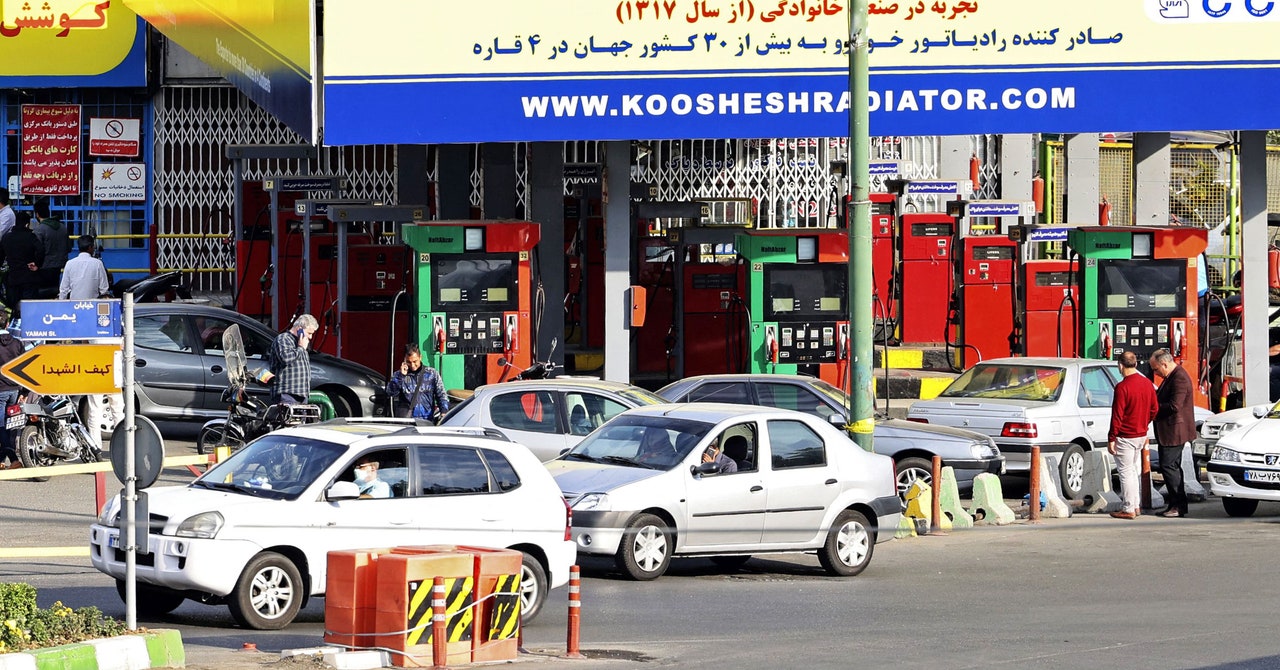
Aika tarkistaa joditabletit...Iranista lähtee selvää viestiä mikä on tavoitteena
Iranian Armed Forces Spokesman: We Will Not Back Down from Goal of Erasing Zionist Regime from Map
Jos olisin ilkeä, kysyisin, mihin ihmeeseen Israel tarvitsee tankkereita. Toi Israel niin iso maa ole.Israelille tuli kiire saada ostamansa tankkerikoneet kun vanhat on maassa. Jenkit eivät suostu nopeuttamaan toimitusta.
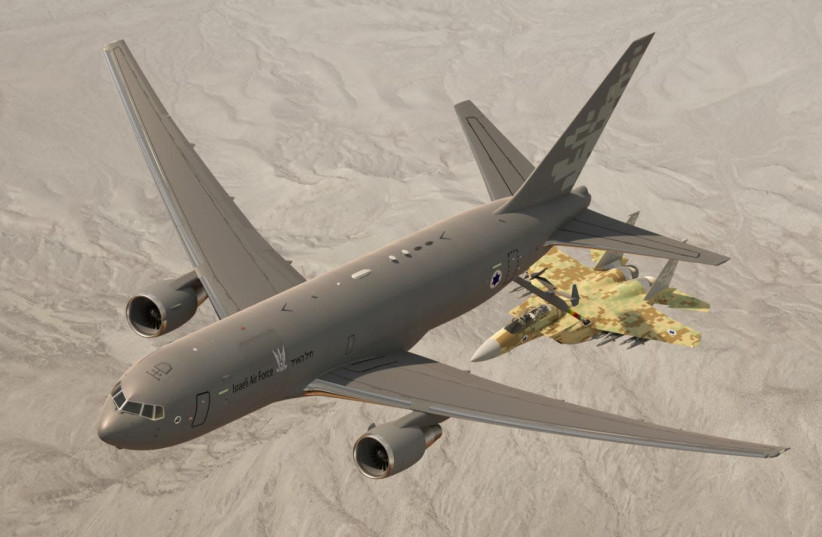
US rejects Israeli request for tanker aircraft as Iran plans advance
The US has reportedly rejected an Israeli request to fast-track the delivery of two tanker aircraft.flip.it

